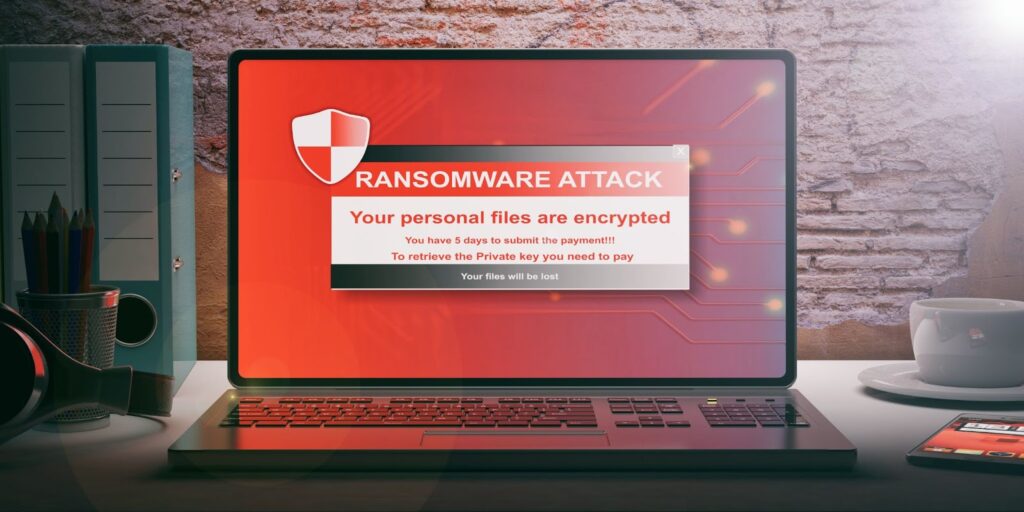A Ransomware Attack and Lessons in Transportation Cybersecurity
Imagine stepping onto your morning commute and being told, “Ride free today!” While it might sound like a dream, this was the reality for San Francisco’s Muni riders in 2016. But it wasn’t a holiday giveaway; it was the result of a major cyberattack that crippled the city’s transportation system. This infamous ransomware attack on the San Francisco Municipal Transportation Agency (SFMTA) serves as a stark reminder of the vulnerabilities of our critical infrastructure and the urgent need for robust cybersecurity.
Video edited on Kapwing
The Weekend of Free Rides: A Ransomware Story

On a chilly Black Friday weekend in 2016, San Francisco’s Muni metro system faced an unexpected shutdown – not due to a technical glitch, but because hackers had infiltrated their network with ransomware. The culprits demanded a hefty ransom of 100 Bitcoin (worth around $73,000 at the time), threatening to keep the system locked down until they received payment.
Muni’s computer screens flashed a daunting message: “You Hacked, ALL Data Encrypted.” The agency’s email systems, employee computers, and even some ticket machines were compromised. Yet, in a bold move, the SFMTA refused to pay the ransom, opting to open the gates and offer free rides instead.

Behind the Scenes: The Anatomy of the Attack
The ransomware, known as HDDCryptor, likely made its way into the SFMTA’s network through a phishing email. Once inside, it wreaked havoc, encrypting critical data and files. This attack exposed several vulnerabilities within the agency’s systems:
- Outdated Software: The SFMTA was running outdated software with known vulnerabilities, making it an easy target for the hackers.
- Inadequate Backups: While the agency had backups, they weren’t comprehensive enough to restore all systems quickly.
- Lack of Cybersecurity Awareness: Employees may not have been adequately trained to identify and report suspicious emails, contributing to the attack’s success.
Fighting Back: SFMTA’s Response and Recovery
Despite the chaos, the SFMTA’s refusal to pay the ransom was a crucial decision. It sent a message to cybercriminals that the agency wouldn’t be held hostage. By leveraging backups and working tirelessly, IT staff restored most systems within a few days, though the incident caused financial losses and reputational damage.

Lessons Learned: Building a More Resilient Transportation Network
The SFMTA attack wasn’t just a local incident; it was a wake-up call for the entire transportation sector. The lessons learned are clear:
- Proactive Cybersecurity is Essential: Regularly update software, patch vulnerabilities, and educate employees on cybersecurity best practices.
- Backups Are Your Lifeline: Maintain comprehensive and regularly tested backups to ensure rapid recovery from attacks.
- Have a Plan: Develop and practice incident response plans to minimize downtime and impact in the event of an attack.
Biomimicry: Nature’s Lessons for Cybersecurity Resilience
Interestingly, the principles of biomimicry, the practice of looking to nature for design solutions, can be applied to cybersecurity as well.
- Decentralization: Like a swarm of bees, decentralized networks can be harder to attack than a single centralized system.
- Redundancy: Just as the human body has two kidneys, redundant systems ensure critical functions can continue even if one part is compromised.
- Adaptation: Like the immune system, security systems should be able to learn and adapt to new threats.

The Road Ahead: A More Secure Future for Transportation
The SFMTA attack highlights the ongoing battle against cyber threats in the transportation sector. However, by embracing collaboration, continuous improvement, and even lessons from nature, we can build more resilient and secure transportation systems for the future.
Call to Action:
Are you a transportation professional? Learn more about how you can protect your organization from cyber threats. Explore the Transportation Sector Intelligence Base for in-depth information, resources, and guidance on cybersecurity best practices. Let’s work together to build a safer, more resilient transportation network.
Resources
- CISA: Cybersecurity and Infrastructure Security Agency (https://www.cisa.gov/)
- TS-ISAC: Transportation Systems Sector Information Sharing and Analysis Center ( [invalid URL removed])
- NIST Cybersecurity Framework: (https://www.nist.gov/cyberframework)
- The Biomimicry Institute: (https://biomimicry.org/)
- “Ransomware attack exposes California transit giant’s sensitive data” (Cybersecurity Dive): https://www.cybersecuritydive.com/news/ransomware-attack-exposes-california-transit-giants-sensitive-data/640121/
- “Three Lessons From the San Francisco Muni Ransomware Attack” (Cloud Security Alliance): https://cloudsecurityalliance.org/blog/2016/12/22/three-lessons-san-francisco-muni-ransomware-attack
Thought Space Leaders and SME’s
Eddie Deen:
- While not directly linkable, Mr. Deen’s insights can be found in the SFMTA’s post-incident reports and analyses, as well as news articles covering the ransomware attack. Search for these using keywords like “SFMTA ransomware attack Eddie Deen.”
Bill Nelson:
- NASA Administrator Bio:
- Twitter: @SenBillNelson
Jen Easterly:
- CISA Director Bio: https://www.cisa.gov/jen-easterly
- CISA Twitter: @CISAgov
Robert M. Lee:
- Dragos Website: https://dragos.com/
- Twitter: @RobertMLee
Eva Velasquez:
- Identity Theft Resource Center (ITRC): https://www.idtheftcenter.org/
- Twitter: @ITRC
Scott Gorton:
- TSA Leadership: (Look for official TSA announcements or press releases mentioning Scott Gorton)
Aviel Tenenbaum:
- Cyviation Website:
- LinkedIn:
Omar Benjumea:
- Cylus Website: https://cylus.com/
- LinkedIn:
Josh Lospinoso:
- Shift5 Website: https://shift5.io/
- Twitter: @joshlospinoso
Dr. Stephen E. Flynn:
- Global Resilience Institute:
- LinkedIn:
Brian Harrell:
- LinkedIn:
